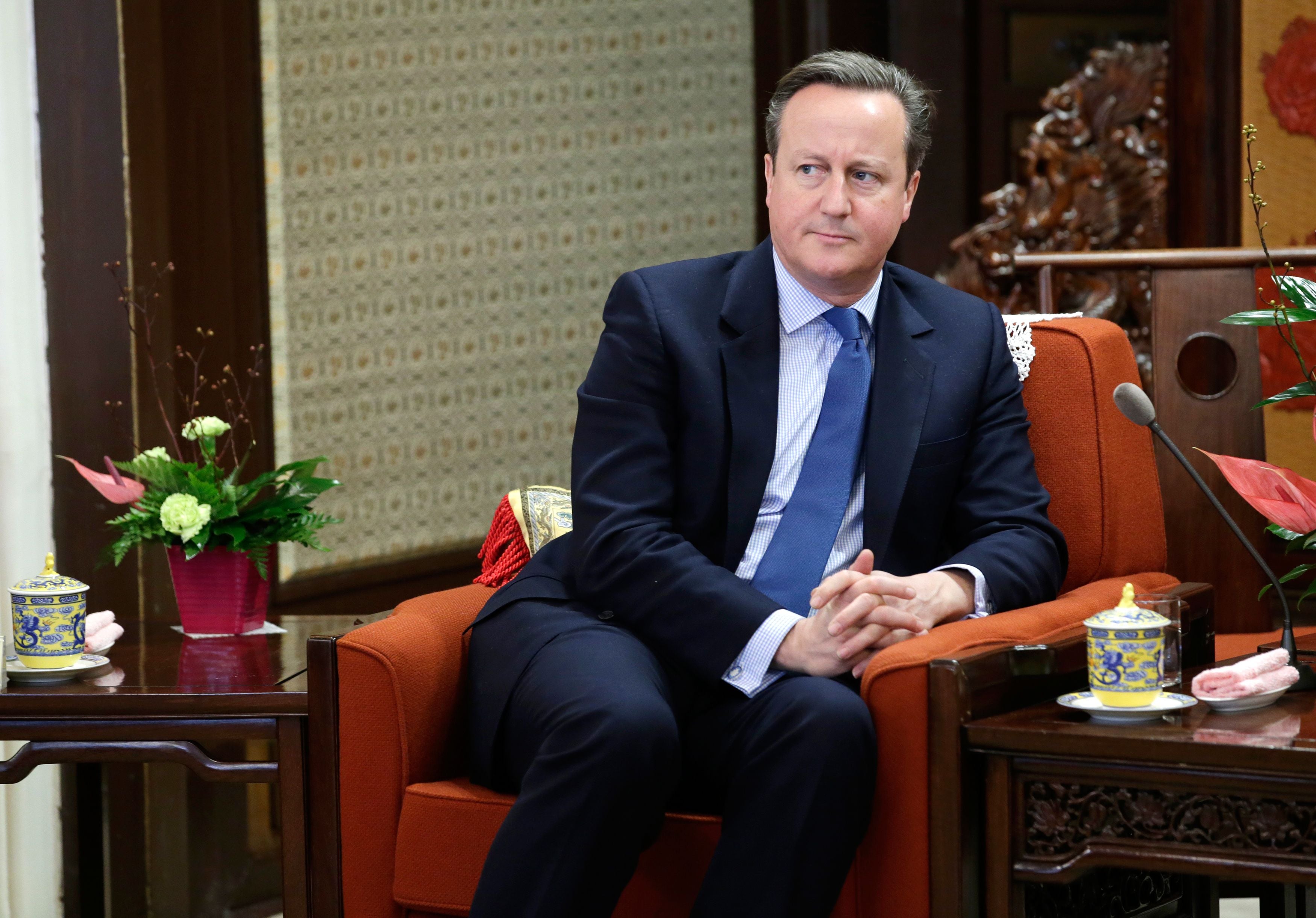Accidents seem to have an alarming propensity to happen to David Cameron
The former PM does not appear to currently be in residence and is studiously ignoring all requests for comment on the collapse of Greensill Capital – one imagines it will also transpire he ran away from home in the middle of a pandemic by accident too


He left his daughter in a pub by accident. He took his country out of the European Union by accident. And now David Cameron seems to let a £50m payout slip through his fingers by accidentally allowing the financial services firm he was advising to go bust.
And when someone manages to find out where he is, given he does not appear to currently be in residence at any of his properties and is studiously ignoring all requests for comment on the collapse of Greensill Capital, one imagines it will also transpire he ran away from home in the middle of a pandemic by accident too. (To think how different history might be if lockdown motoring enthusiasts Cameron and Dominic Cummings had ever seen how much more they have in common than that which divides them.)
Of this holy trinity of Cameron accidents, arguably the most recent is the most negligent. Where Greensill Capital, and its impresario Lex Greensill, appear to have gone wrong is by getting involved in the very risky world of “future accounts receivables finance” – which mainly involves paying people for work they haven’t done yet.
Why didn’t Cameron stop them? What was he there for? What advice was he expected to give if not to warn them of the dangers of this kind of thing?
Read more:
- Let’s take a closer look at what Allegra Stratton describes as Boris Johnson’s ‘honesty and integrity’
- As a Black mother-to-be, I used my husband’s whiteness to keep me safe
- This is supposed to be the trial of Derek Chauvin, not the trial of George Floyd
- Rape culture at private schools isn’t about to change – parents are paying for this sense of entitlement
“Look,” he could have said. “A few years ago, someone paid me eight hundred grand for a book, and it’s not merely that I spunked half of that on a luxury shepherds hut and then delivered it two and a half years late. It’s that, having trousered the bunce, for that whole time I knew, in fact I was the only person who knew, that I was writing quite possibly the most boring memoir of all time, in which every single one of its 752 pages would somehow be even more boring than the last.”
Yet somehow that precious nugget of advice got left in the adviser’s mind palace. Oh well, these things happen.
It’s hard, really, to work out who is to blame for Greensill’s downfall. It is getting on for a decade ago that the Australian banker managed to smooth talk his way into the heart of the Cameron government. His big idea was that he could get the government to pay him to pay people they owed money to. One or two people at the time are rumoured to have said words to the effect of: “We’re the government. Why don’t we just pay them ourselves?”
But don’t let that bother you. It certainly didn’t bother Cameron. Which is precisely what should have bothered Greensill. Snake oil salesmen don’t ordinarily hire their victims as advisers, because they know better than anyone how stupid they are. So, in that sense, the two men certainly deserve each other.
Of course, the whole saga is another jaunt round the moral maze of what politicians should and shouldn’t do once they’ve stopped being politicians.
In the very old days, MPs and prime ministers were unpaid to prevent them, in theory, from being corrupted by money; though naturally excluding anyone who couldn’t afford to work for free.
Quite a long time ago, a very young Michael Heseltine is meant to have written on the back of an envelope a rough decade-by-decade life plan that involved becoming a millionaire by the age of 25, an MP by 35, all the way to Downing Street by 55. Were Heseltine young again, one imagines he might reorder a few of the paragraphs.
Cameron’s life plan, one imagines, hasn’t gone entirely as he hoped, what with the whole Brexit-by-accident, resigned-in-disgrace thing.
Viewed from not even especially afar, there is something a touch not right about a prime minister getting a banker in to get very rich indeed doing the government’s work for them, and then a few years later, said prime minister gets very rich by working for the banker in question.
Perhaps it should all be regulated in some way. But then again, if the prime minister can be relied upon to accidentally detonate his own political career, and then do the same to the companies who pay him, perhaps this murky world’s capacity for self regulation is greater than imagined.
Attempts to “finally sort out” big problems in politics do sometimes go wrong after all.
Join our commenting forum
Join thought-provoking conversations, follow other Independent readers and see their replies
Comments
Bookmark popover
Removed from bookmarks